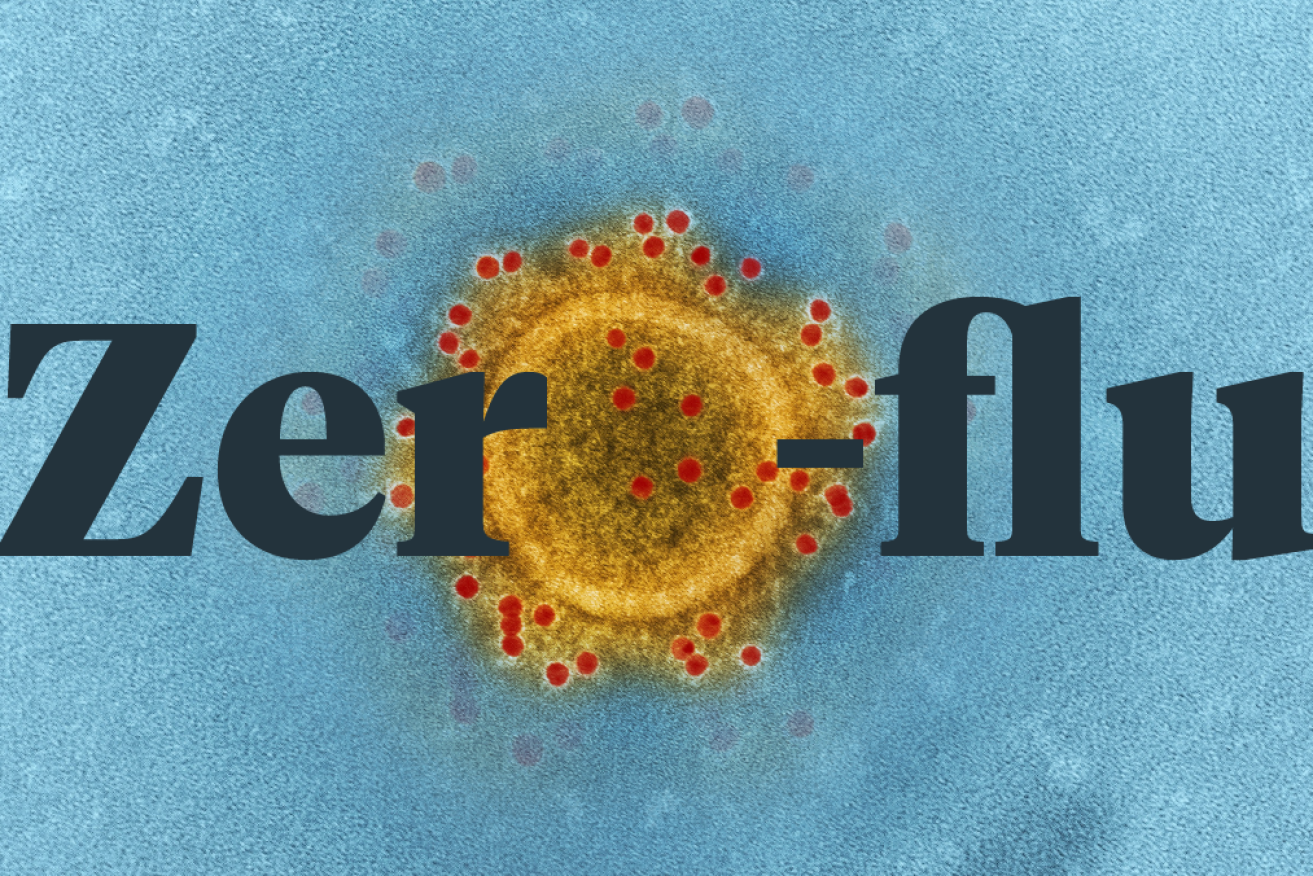The surprising health upside to Australia’s COVID lockdowns, and why a flu shot still matters


For the first time possibly ever, Australia has recorded no flu deaths in over a year. Photo: CDC/TND
While millions of us have been focused on the deadly threat of COVID-19, something curious has happened in Australia with another dangerous virus.
There have been fewer than 500 influenza cases in Australia since late July last year – and no deaths.
By comparison, at this time in 2019 there were about 500 influenza deaths from more than 214,000 cases in the same period (different data sets vary on exact numbers).
Further, federal government data shows no one in Australia has been hospitalised with influenza since April this year.
Ian Barr, deputy director of the World Health Organisation’s Collaborating Centre for Reference and Research on Influenza, said such low numbers were unprecedented.
“I suspect this has never happened before,” Professor Barr told The New Daily. “Certainly not in the past 20 years.”
Stringent public health measures brought in to deal with the coronavirus – such as physical distancing, masks and hygiene practices – have likely led to the staggering drop in flu cases.
“All of the measures we’ve taken to combat COVID would bring down flu numbers,” Professor Barr said.
“The most important being the closing of international borders, and people quarantining during their infectious period.”
Unlike the viruses that cause the common cold, influenza does not lie dormant during summer.
Instead, it migrates around the globe and returns in mutated variants each winter.
There have been recent influenza cases in Australia in returned travellers in hotel quarantine, Professor Barr said. But community transmission of the flu has been all but stamped out.
“There are still influenza hotspots, like India and West Africa, where they have quite large populations and where their COVID restrictions maybe haven’t been as tight or heavily enforced,” he said.
Record low flu seasons have been a “global phenomenon”, Professor Barr said. Along with Australia, there has also been “low or no influenza” in recent months in the United States, and Western Europe.
Experts hope the pandemic can move the yardstick when it comes to controlling infectious diseases.
“I think there will be better awareness of how these viruses are transmitted,” Professor Barr said.
“Use of masks might become more commonplace. Maybe not as prevalent as it is in Asia, but people will hopefully take some measures to mitigate the spread of diseases like influenza.
“But people forget very quickly, so in a few years’ time maybe all these things might have be forgotten.”
It’s not all good
Very low flu transmission makes things difficult for vaccine researchers.
Professor Barr said researchers might struggle to access enough of the current influenza viruses to update seasonal jabs.
“What we’re trying to do is predict the future and the less data we have, the more difficult that prediction becomes,” he said.
“We’ve never seen such a tight restriction on the amount of influenza available for study.”
There are also worries that when the flu does return, it will be with a vengeance.
Australian Medical Association vice-president Chris Moy said a good flu season increased complacency and reduced natural immunity.
“We’ve often had bad seasons after low seasons,” Dr Moy said.
“Because there’s not a lot of immunity from people getting infected the previous year.
“People are just less likely to get vaccinated after a light year.”
In April, Dr Moy even warned that this year’s flu season might be bad after last year’s relatively low 21,000 cases and 36 deaths.
“But ultimately the restriction of movement, as well as masks, physical distancing, and personal hygiene have really had a huge effect, as you can see,” he said.
Why you still need a flu jab
Both Dr Moy and Professor Barr encouraged people to get the flu jab, despite the low levels of the virus in Australia.
“You can never be 100 per cent sure what’s going to happen,” Dr Moy said.
“We need people not to get flu, because our health system is so much on a knife edge at the moment. We do not need people ending up in hospital with the flu as well.”
Last year, health authorities “vaccinated hard” against influenza to prevent people from getting both COVID and the flu, Dr Moy said, “which would be a disaster”.
“But also to make sure we weren’t getting the same number of people ending up in hospital for the flu, just so that they wouldn’t take up beds needed for COVID,” he said.
We also need flu jabs to prevent people from getting sick and dying of the flu, Dr Moy said, just as we need them now for COVID.
“Looking at the way Delta’s working at the moment, our ability to get to a full herd immunity [to COVID-19] is going to be pretty low,” he said.
“We’re going to be relying on vaccinations so people don’t get sick and die.
“But the natural history of coronaviruses is they actually, theoretically, become more benign over time, and so it might become less of an issue.
“Next year we may be more vaccinated, we may have better vaccines, we might have better boosters, and we might have better treatment.”
Professor Barr also urged people to keep getting tested for COVID-19.
“Not every sneeze and sniffle is likely to be COVID” he said.
“But people can’t tell by themselves, so go and get tested.”








